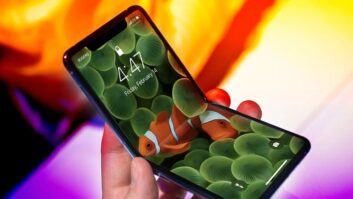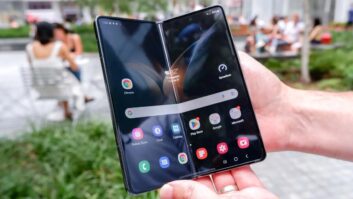Mountain View, Calif. – Google agreed to sell its Motorola Mobility cellphone business to PC maker Lenovo in a $2.91 billion deal that will give the world’s largest PC maker a presence in the U.S. cellphone business.
Lenovo’s move will supplement its cellphone sales that take place outside the U.S.
For Google, the sale of its money-losing Motorola operation only 22 months after acquiring it for $12.5 billion will ease potential concerns by licensees of Google’s Android smartphone OS that Google was competing against them in the handset business and played favorites with Motorola.
With the deal, Google said it “will maintain ownership of the vast majority of the Motorola Mobility patent portfolio, including current patent applications and invention disclosures.” One of the key motivations for Google’s acquisition of Motorola Mobility in May 2012 was to acquire Motorola’s vast trove of cellphone-related patents to gain leverage for itself and Android licensees against patent lawsuits.
Under the terms of the deal, Lenovo gets Motorola Mobility’s brand and trademark portfolio, Motorola’s smartphone portfolio, ownership of Motorola’s product roadmap, a license to Google’s smartphone patent portfolio and other intellectual property, and more than 2,000 patent assets.
Motorola was a key contributor to the development of the U.S. cellphone market, having demonstrated the first handheld cellular phone in the 1970s to convince the Federal Communications Commission (FCC) to require cellular-network support for handheld phones the 1983 launch of analog cellular service in the U.S.
Google said Motorola is currently the No. 3 Android smartphone manufacturer in the U.S. and No. 3 manufacturer overall in Latin America. Motorola once had top U.S. share in the overall cellphone business in the 1990s.
The acquisition “will immediately make Lenovo a strong global competitor in smartphones,” said Lenovo chairman/CEO Yang Yuanqing. “We will immediately have the opportunity to become a strong global player in the fast-growing mobile space.” Lenovo has “a proven track record of successfully embracing and strengthening great brands — as we did with IBM’s Think brand — and smoothly and efficiently integrating companies around the world,” he contended.
Google CEO Larry Page said Lenovo “has the expertise and track record to scale Motorola Mobility into a major player within the Android ecosystem.” The sale “will enable Google to devote our energy to driving innovation across the Android ecosystem, for the benefit of smartphone users everywhere.”
Motorola’s has posted operating losses every quarter under Google ownership and has seen its global share shrink as the company left the feature phone business and scaled back operations outside the U.S. in an attempt to regain profitability.
In the fourth quarter, Motorola’s share of U.S. cellphone sales to end users came to 5 percent, a fourth-place showing after Apple’s 48 percent, Samsung’s 31 percent, and LG’s 8 percent, according to a consumer survey by Consumer Intelligence Research Partners. HTC followed with 3 percent and Nokia with 2 percent.
Analysts see the acquisition giving Lenovo the scale to compete more effectively in cellphones.
“Lenovo now has extra scale in smartphones and a seat near the top table,” said Strategy Analytics. “However, whether Lenovo can turnaround the long-struggling Motorola business, and what happens to the Motorola brand long-term, remain key questions that will need to be answered in the coming months
With the acquisition, the combined entity of Lenovo and Motorola captured a 6 percent share of global smartphone shipments in 2013, making it the world’s third-largest smartphone vendor by volume behind Samsung at 32 percent and Apple with 15 percent, Strategy Analytics said.
With the deal, Lenovo gets access to the valuable U.S. smartphone market and the fast-growing Latin America region to complement its global PC business.
Motorola “gains access to an ambitious sugar daddy that has a strong presence in the huge China market,” Strategy Analytics added.
Independent analyst Jeff Kagan said Lenovo “seems to suddenly be on the fast track to growth on the smartphone side of the fence,” having already launched its first Lenovo-brand smartphone outside the U.S.
The Motorola brand “may be older and tired, but it does have one of the strongest and most respected brand names in the business,” Kagan continued. “If Lenovo can freshen up the Motorola brand, and merge the ideas and thinking they currently use in their smartphones with Motorola, they could indeed create a very strong new competitor.”
Lenovo will become more like Apple with the purchase because the company offers smartphones as well as computers and tablets, Kagan said.
The deal must still be approved by regulatory authorities.
Though Google purchased Motorola for $12.5 billion, it made $2.35 billion by selling off Motorola’s set-top box business.













